The Story of Matsinho Community
The poverty of the people living in Matsinho A Community is confronting. Poor living conditions play a contributing factor to the various health challenges that exist in the community. The impact of these health challenges has resulted in a number of parents passing away in recent years - often leaving children either alone or under the care of another relative. With little opportunity for employment, many people are forced to rely on farming small plots of land to survive. The practicing of witchcraft and traditional medicine has created a stronghold within the community, leading to many turning to these practices rather than to health care from clinics. Each of these challenges adds to the vulnerability of the people living in Matsinho A Community.
In 2011, Care Workers from the local church in Matsinho united to carry out their calling to care for the most vulnerable children. In 2015, Hands at Work partnered with them to create Matsinho A Community Based Organisation (CBO).
Since the local Hands at Work team in Chimoio formed, they have supported and grown the Care Workers within the Matsinho A CBO. The Care Workers are quick to advocate for the children that they care for, especially the young girls, who are susceptible to early marriage and teenage pregnancy.
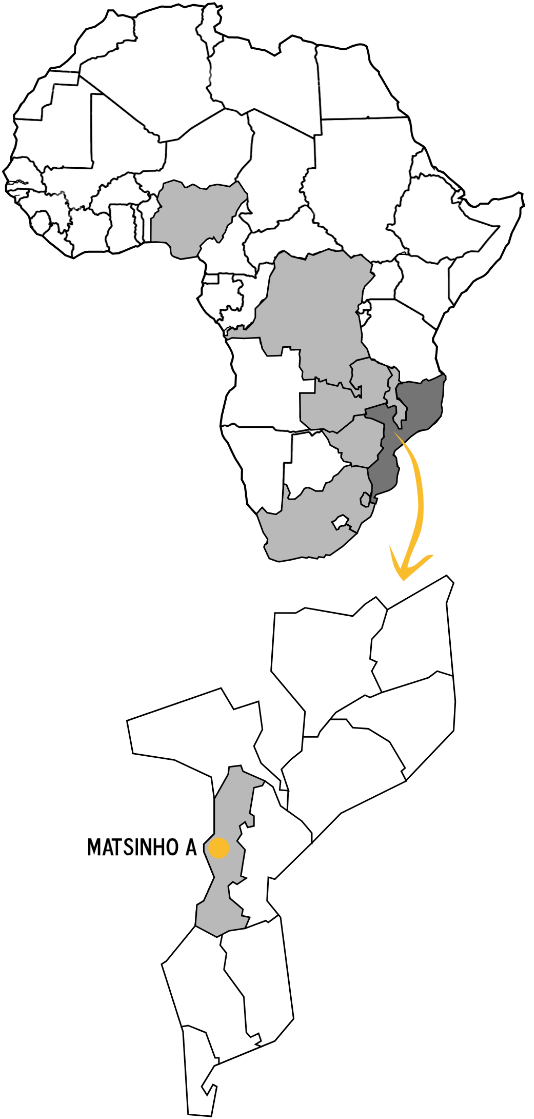
140 Children currently supported
17 Care Workers Coordinated by Maria
35 km from the Chimoio Local Office
Basic Services Started in 2015
Over the years, due to the ever-increasing vulnerability in Matsinho, the number of children being cared for increased from 75 to 150. Most children added were from existing families. Due to the challenge of poor harvests, the small plots of land that caregivers rely on aren’t sufficient in producing a harvest capable of feeding their family.
The relationship with the local church has meant that the Life Centre now operates out of one of the churches in Matsinho.
Regularly, the Care Workers visit the children in their homes, developing strong relationships of trust which enables them to effectively support each child’s physical, emotional, and spiritual needs. Despite their own difficulties, the Care Workers aim to bring Christ-like hope and love to their community.
As Matsinho A continues to develop into a thriving Life Centre, investments have been made to various structures, including a purpose-built kitchen shelter and a well for clean water access. In 2024, new facilities, including a toilet and kitchen, were constructed.
The local Hands at Work team in Chimoio currently supports five Community Based Organisations, which exist to care for the most vulnerable in their communities. The office provides training, networking, and encouragement to those Community Based Organisations like Matsinho. It also gives administrative support, including helping with funding proposals, monitoring and evaluation, bookkeeping and reporting to donors.
BE INSPIRED BY UPDATES FROM Matsinho COMMUNITY
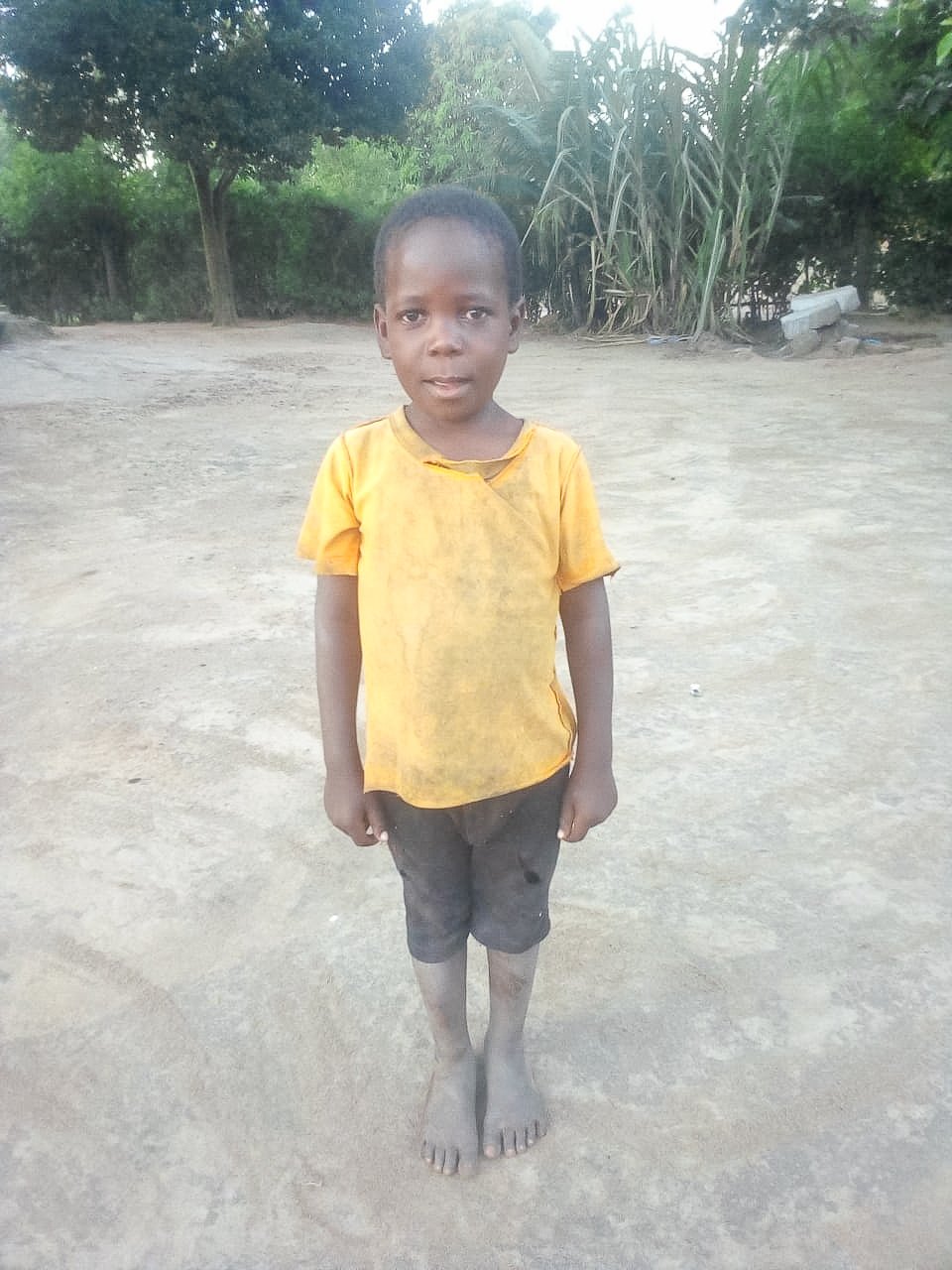
When Daniel* and his grandmother Diana* were identified as among the most vulnerable in Matsinho A Community, Mozambique, it was a turning point for them. Rosa and the other Care Workers became a support to lean on – Diana knew they could fill the gaps she could not. Daniel and his two sisters were welcomed to the Care Point – a wholesome, safe place where they receive a hot, nutritious meal and access to education.
Seeing Daniel’s home in disrepair, the Care Workers advocated for this family’s needs, and together with the support of the local Hands at Work team in Chimoio, they received a new, safe home. Today, the transforming love of God is evident in this family. Not only are their basic needs met, but Daniel and his family are finding true healing and the ability to trust again. Daniel happily plays with his friends and has found a place of belonging at the Care Point.
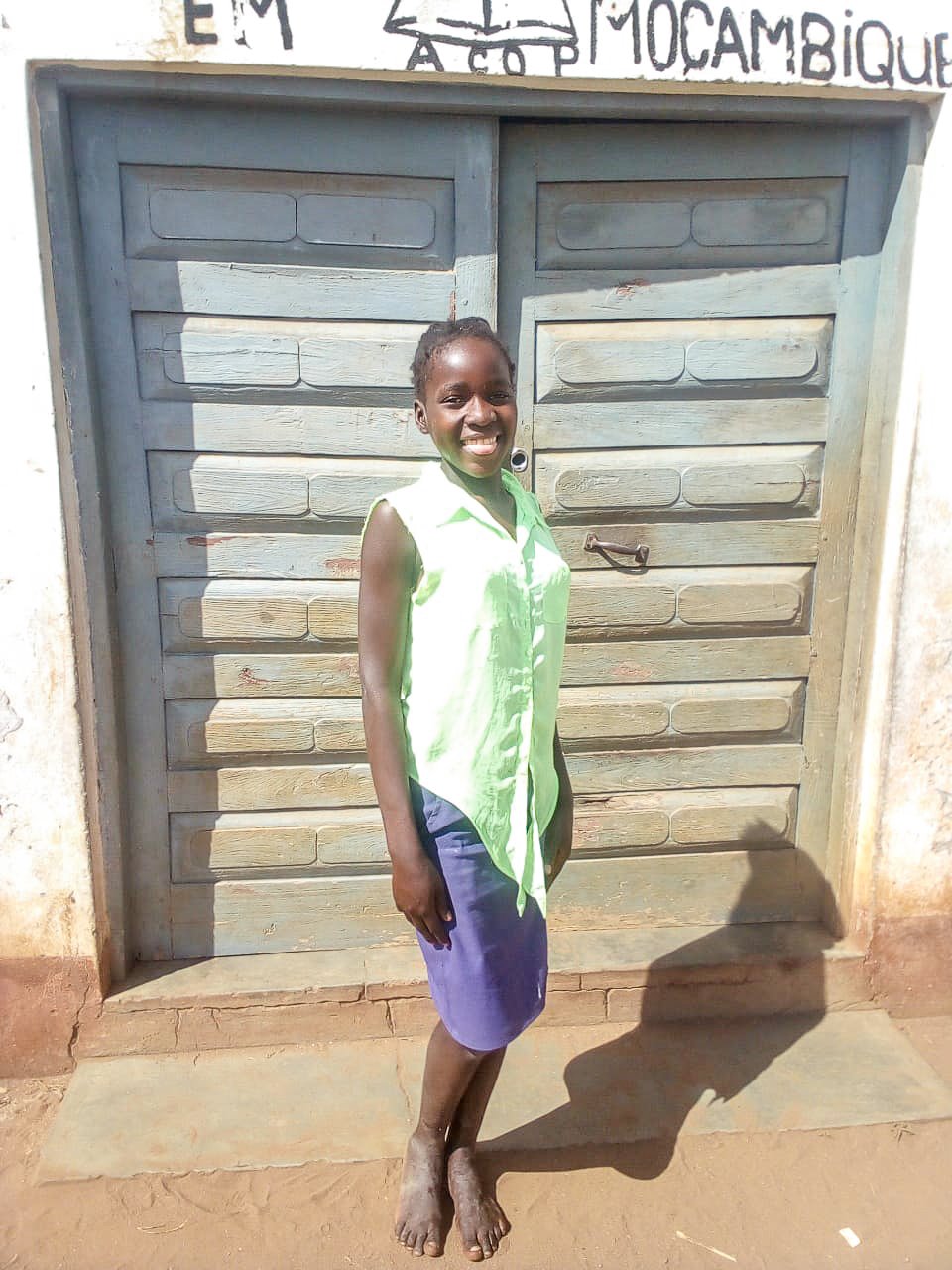
My Life: Rosa Francisco, a Care Worker in Matsinho A Community, Mozambique
“Since I joined Hands at Work, my life has been changed. Before I joined, I struggled to pray, and my children were always sick. But I have learned how to pray and now even when my children are at home sick, I am able to pray for them. I used to be someone who was always sick but I am able to pray for myself now and I see change. Through caring for the children, I feel love.”
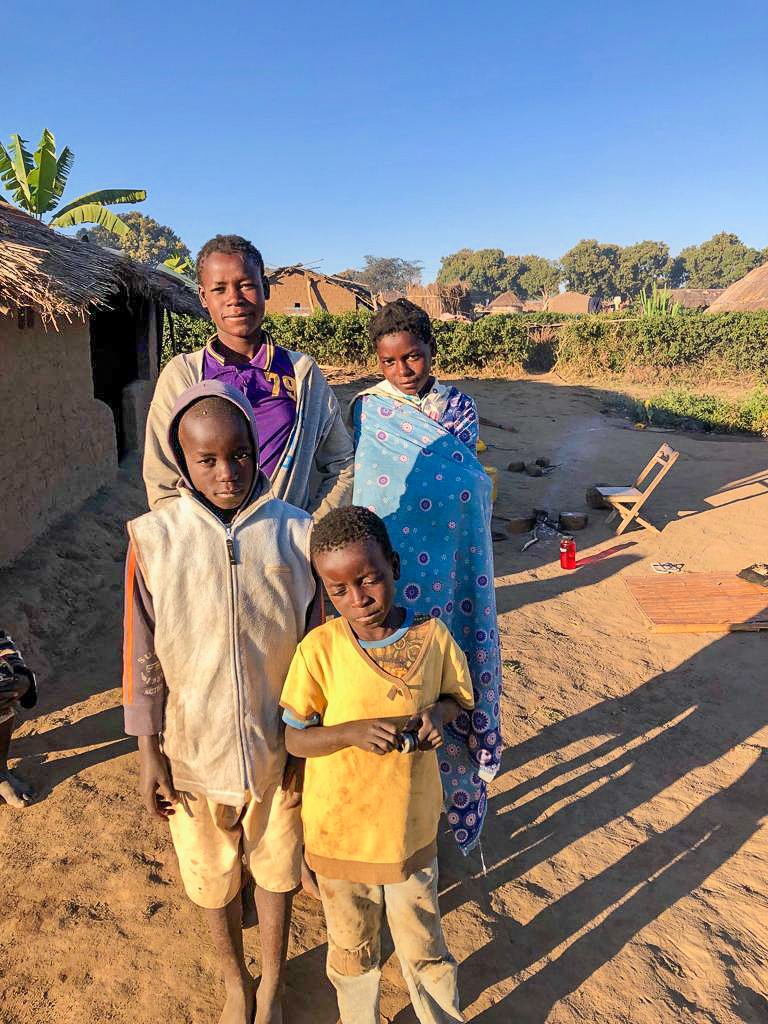
Across Africa, there are men and women committed to speaking into the cultural practice and dangers of girls marrying at a young age. Kupa Kwashe, Hands at Work Leader from Zimbabwe, shares a story of Rebecca* (pictured back left), a girl in Mozambique and how the Care Workers and the local Hands at Work team in Chimoio, Mozambique, fought to ensure that she didn’t enter into childhood marriage.
“Rebecca grew up living in Matsinho Community with her grandmother and three siblings. She was one of our children coming to the Care Point. As Rebecca got older, the Care Workers started hearing that she was entering into unhealthy lifestyles and were concerned for her wellbeing. They heard that she had entered into an early marriage with another young man from the community. Understanding the dangers of early marriage, the Care Workers and the Chimoio team went to talk with Rebecca and her grandmother. Speaking out of love and concern, they shared how Rebecca was too young to be married and needed to go back to school. Rebecca understood the message and what was being shared. She went back to school and even started coming back to the Care Point. We are grateful because she took our advice and waited until she was 18 to get married.”
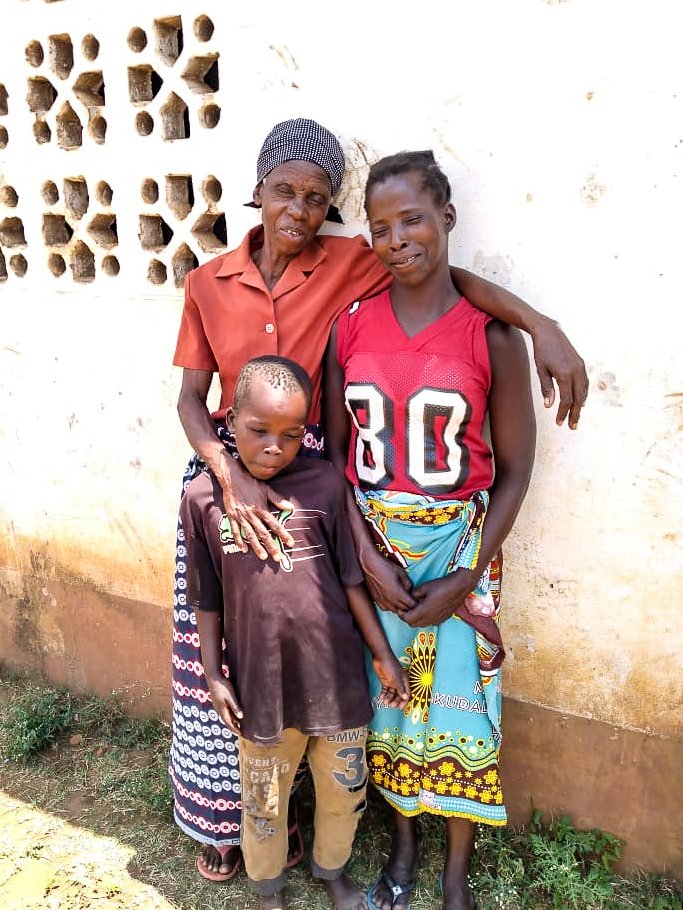
Care Worker Fatima has been caring for Chipo* and her two children for seven years and thinks of her as her own daughter. They are one of the most vulnerable families in Matsinho A Community in Mozambique. Fatima visits her and the children often. Chipo trusts Fatima as if she were her own family.
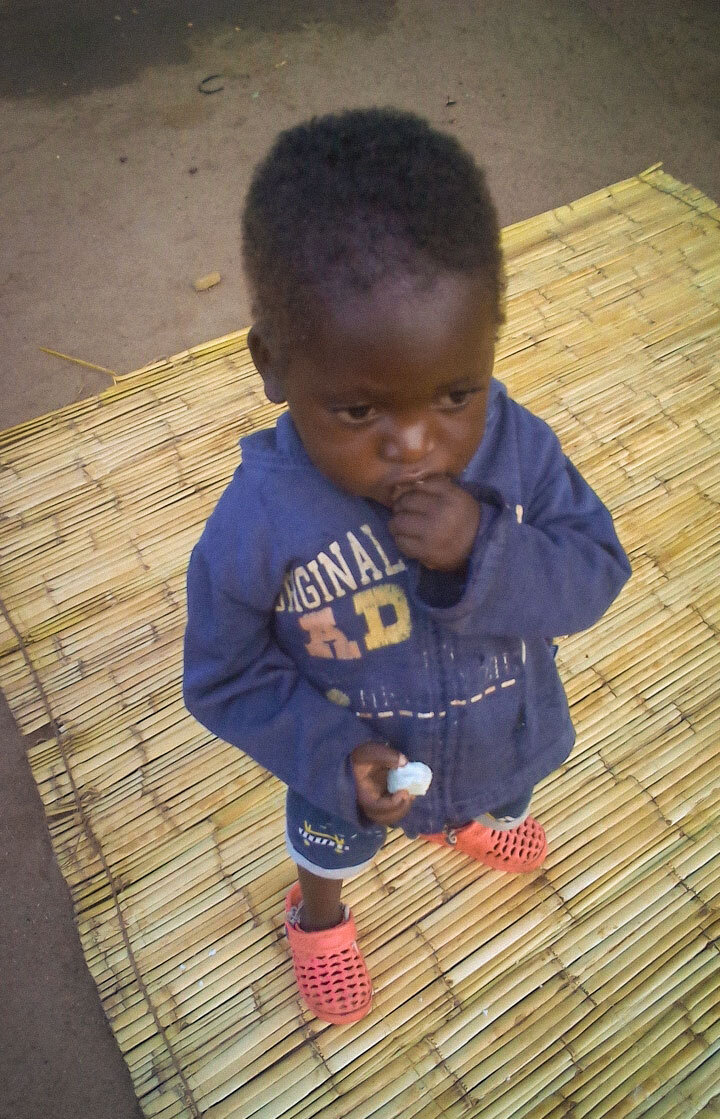
When Manuel* came into the clinic he was severely malnourished and in desperate need of love and care. Immediately, the clinic called the Care Workers from the Matsinho A Community Based Organisation to see how they could help. Today, three-year-old Manuel, through the love and care of the Care Workers, receives breakfast porridge and a hot, nutritious lunch every day. Although Manuel has a long way to go, his health is improving – he is now 9kgs!
Praise God for the relationships that have been built between the clinic and the Care Workers, and pray that these relationships will continue to strengthen as they work together to care for the most vulnerable children.
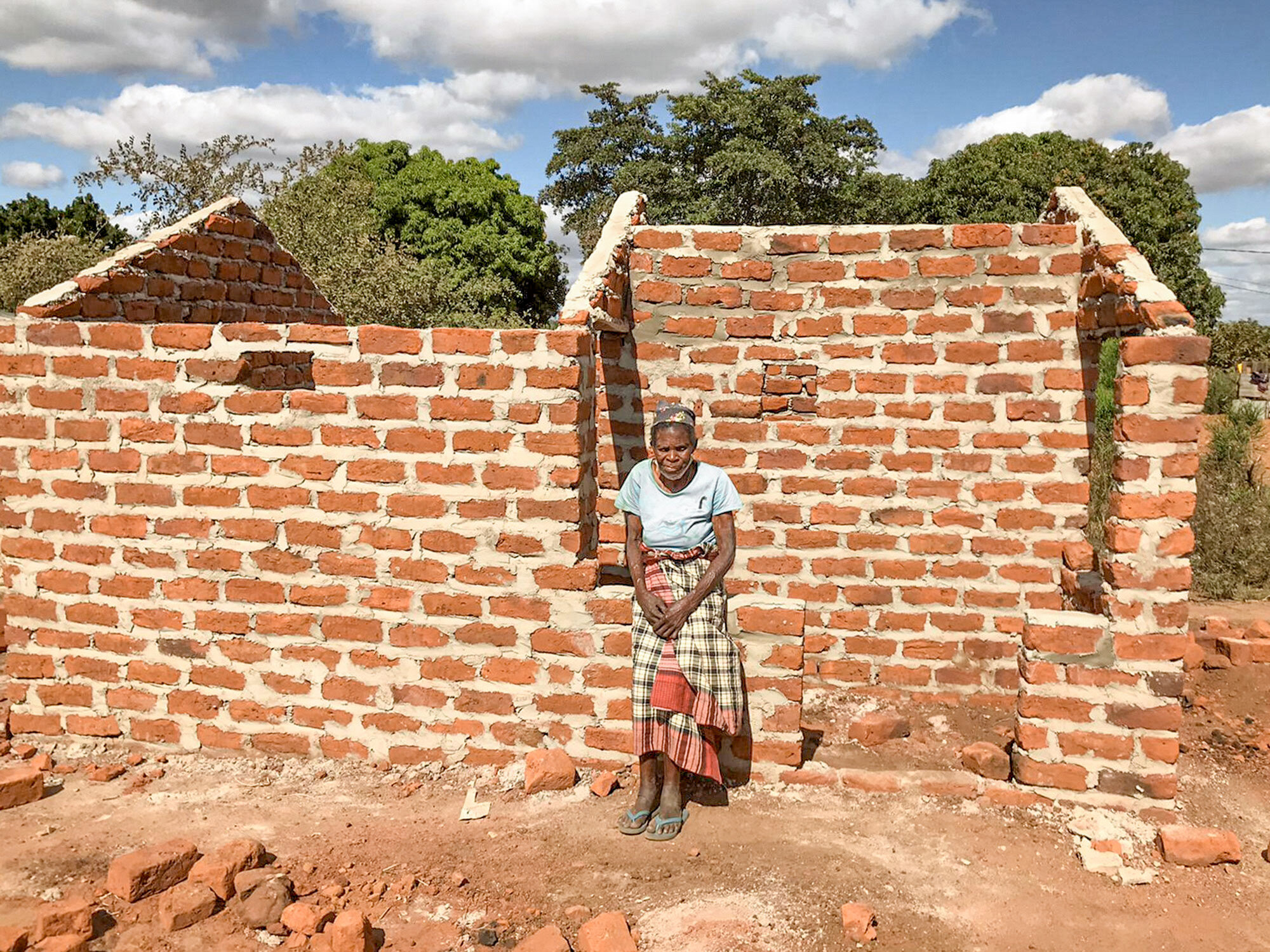
A vulnerable grandmother in the community of Matsinho, Mozambique looks after her two great grandchildren. This year, their house burned down. In response, one of the local church leaders invited this vulnerable family to stay with him in his own home, while the Matsinho Community Based Organisation was able to rebuild their home and give the family some new supplies.
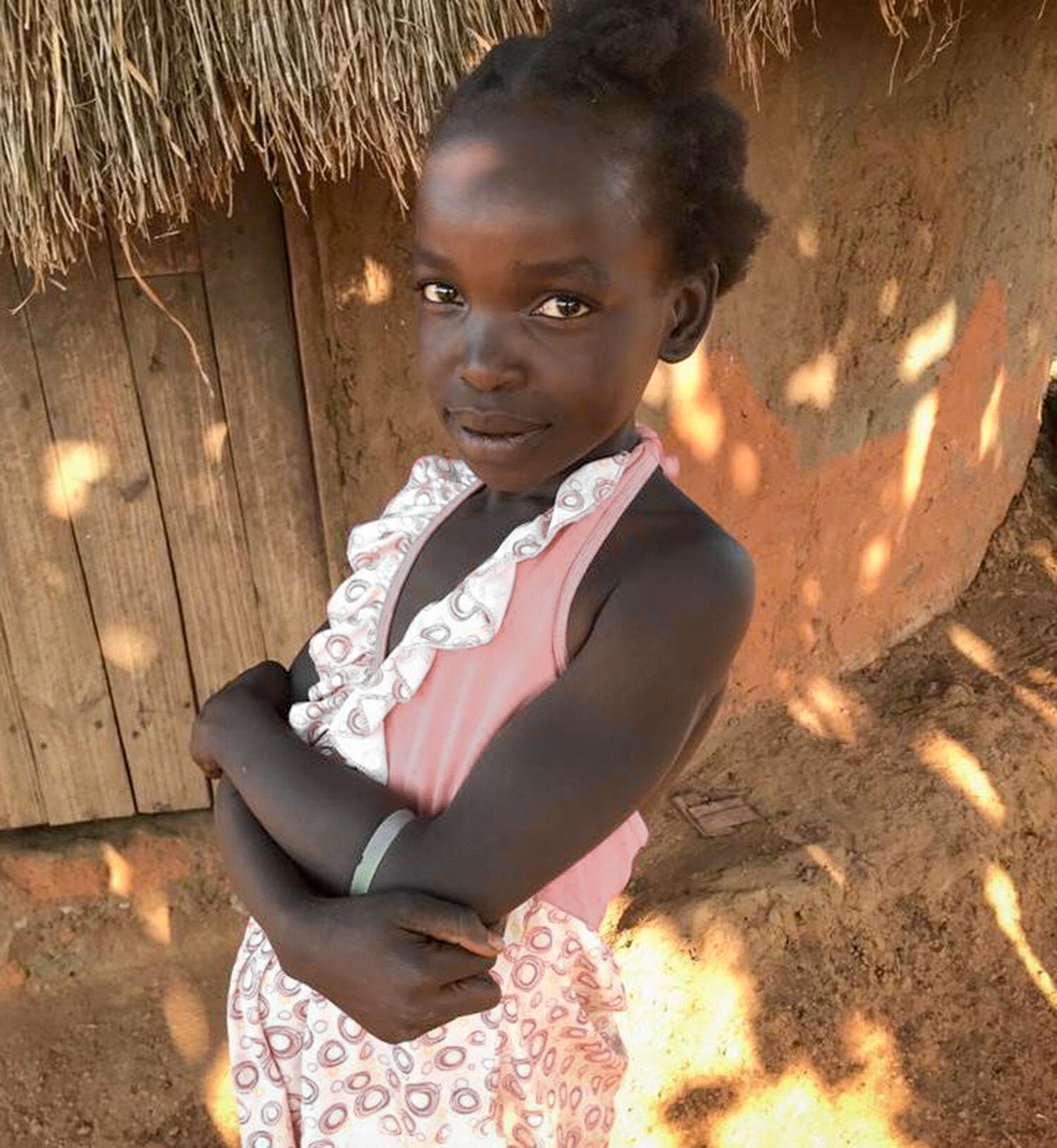
Matsinho Community, #Mozambique.
When volunteer #CareWorkers met Sonia, they quickly identified her as desperately vulnerable and in need of love and attention, and invited her to the Care Point. Having experienced much trauma in her life, Sonia would frequently run away from her family, teachers and the school that she attended. Thankfully, the Care Workers did not give up on Sonia, but rather showed her unconditional love and grace. It is because of their commitment that today, 12-year-old Sonia attends school regularly and enjoys receiving her education.
#ServingTheMostVulnerable
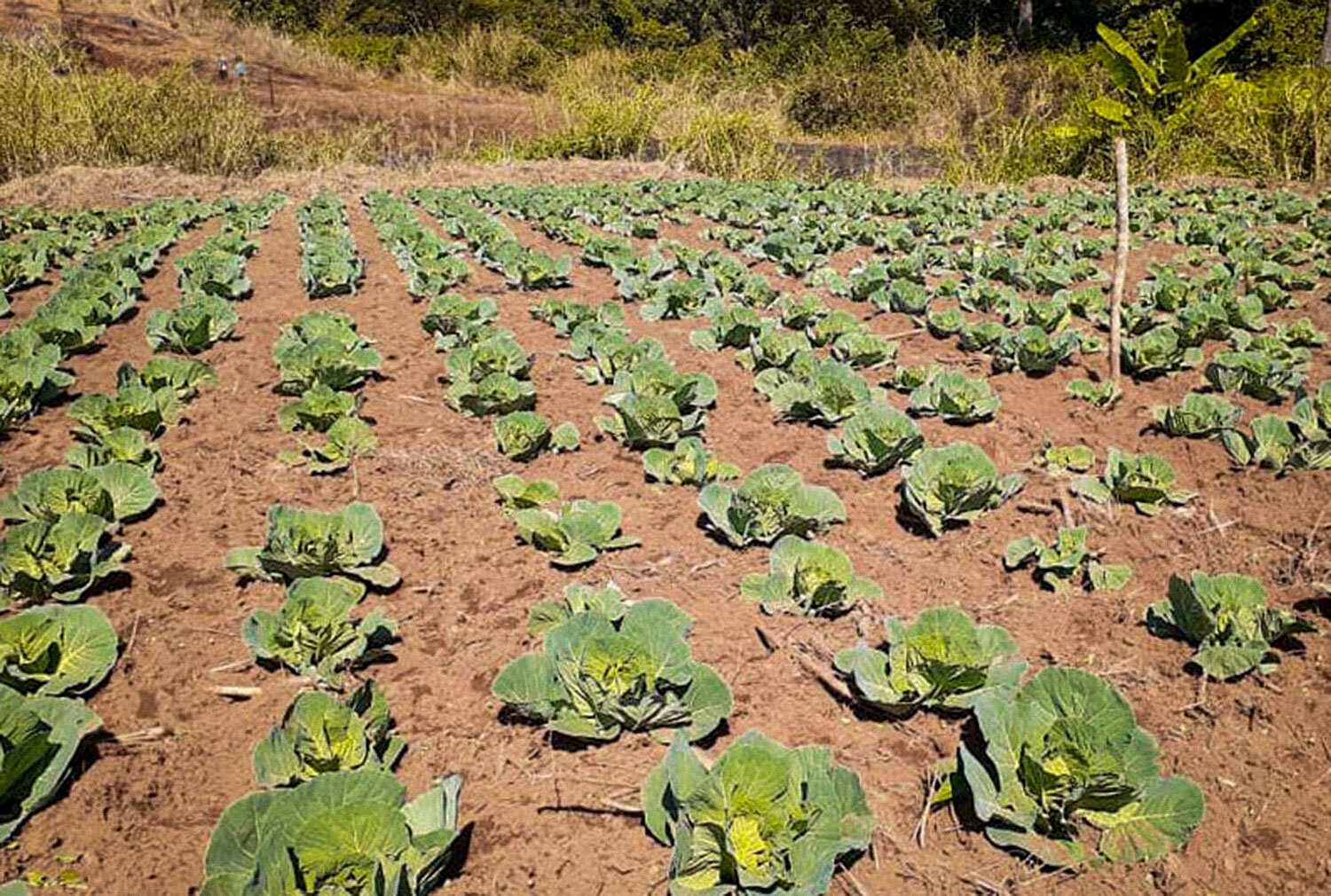
Cyclone Idai caused widespread food insecurity, with families losing their entire crop harvest. In response, Hands at Work mobilised communities like Matsinho in Mozambique – the hardest hit – to establish community gardens with fast-growing crops. In a time of mass chaos with many people feeling paralysed by the enormity of the destruction, this community garden provided a source of hope! A community meeting was called for Hands at Work to cast the vision to local people, and land was offered by a local church leader. A written agreement was drafted and put into place which specified the terms of the garden, including expectations of input and how the harvest would be divided. Since the garden in Matsinho Community was planted, two successful bean crops have been harvested and apportioned accordingly.
With remaining funds from the garden in Matsinho, two additional gardens were also planted in the communities of Chigodole and Macadeira, in Mozambique. Potatoes and cabbages were successfully planted and harvested in Chigodole, and in Macadeira, potatoes and green vegetables were planted. These gardens provided the local Care Workers, Primary Care Givers, church leaders and children with the means for nutritious food to help combat serious food insecurity. An encouraging consequence was also an increased sense of unity built up amongst local people in the hardest-hit regions; people working together, despite their loss, to create a means of survival for their future.

“My favourite part of being a Care Worker is playing with and caring for the children. I love that I can be a mother figure to many children and be able to make a difference in their lives.” – Joanna, a Care Worker in Matsinho A Community, Mozambique.
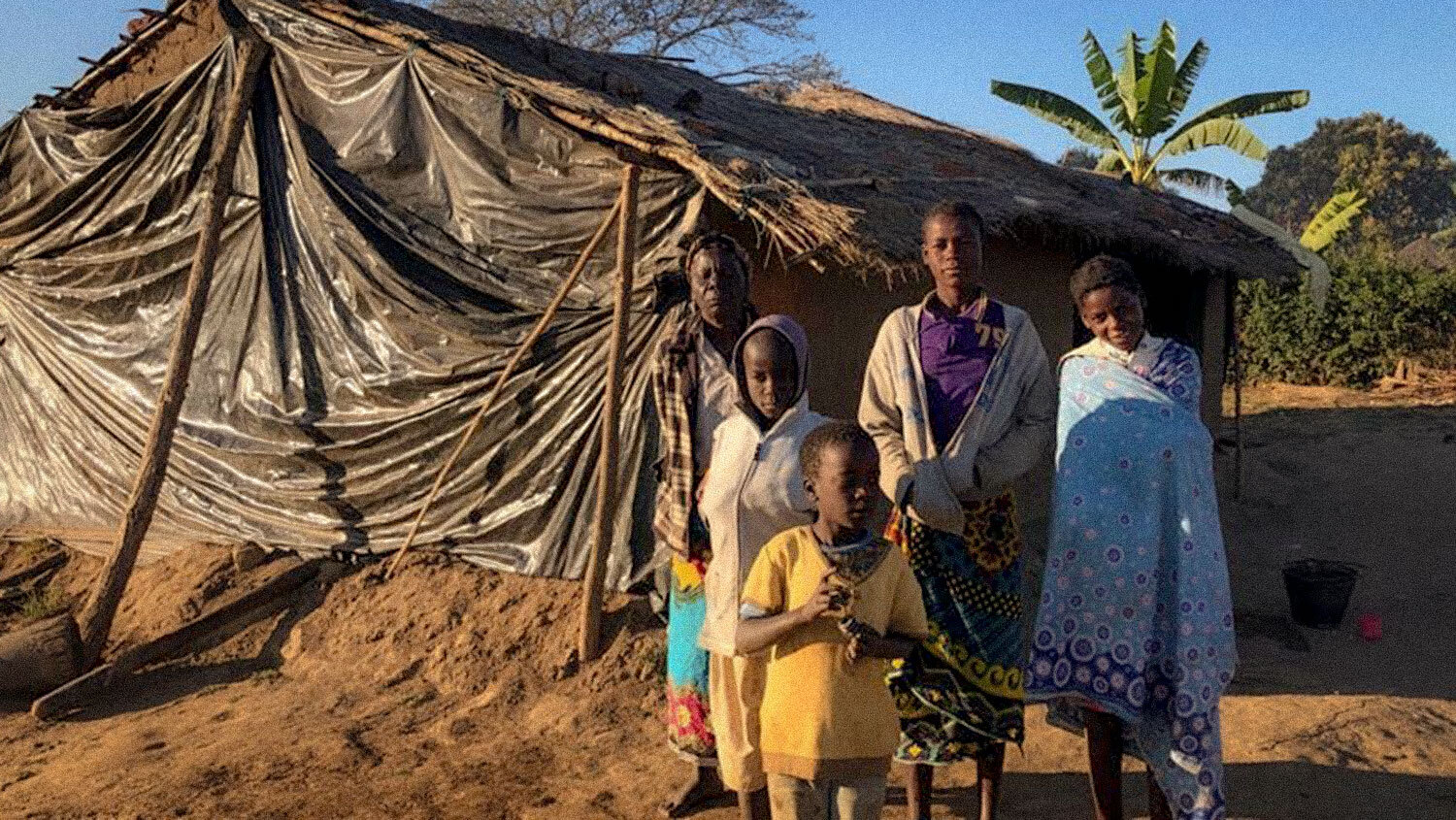
Matsinho A Community, Mozambique – Tragedy struck 15-year-old Abiba* and her siblings at a young age when they were abandoned by their mother. Their grandmother cared for them faithfully but was unable to provide enough food. Invited to the Care Point by Care Worker Maria, they now receive a daily hot, nutritious meal and enjoy chatting with their friends at school.
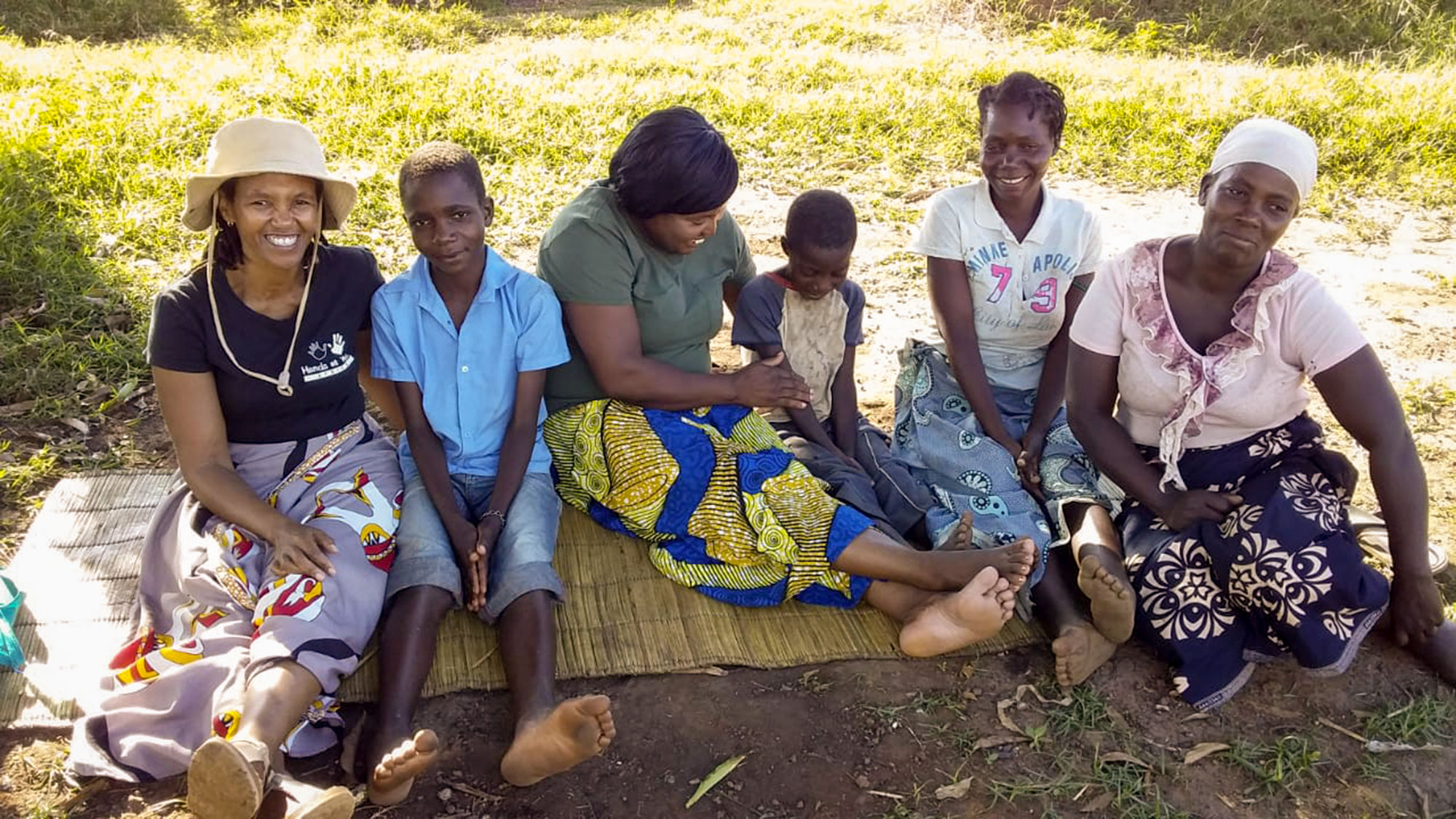
Story from African Leaders’ Training in Mozambique
While Busie Sityata-Jones, African Leader, South Africa, was in the community of Matsinho, she visited Celeste and her two sons, Peter* and Lewis*, who had lost both of their huts during the cyclone. “The family were asleep inside when the first hut collapsed. They escaped to their second hut which then collapsed around them hours later. As I sat hearing this story, Celeste shared, “I’ve lost two of my houses but I saw God being good because we are still safe. I didn’t lose my life and neither did my children. I’m thankful because my children are not orphans.”
Eventually, I asked about the plastic that was on the home, to which the mother responded that it had been fixed by the church leaders. They had come by when she wasn’t at home. It was the church people who had come and responded in their time of need, even though she didn’t even know who they were. Hearing her story, it was a story of hope and seeing God in the brokenness. As we rebuild, I want to be a part of it, because they saw the hope of my faithful Father.”
- Busie Siyata-Jones
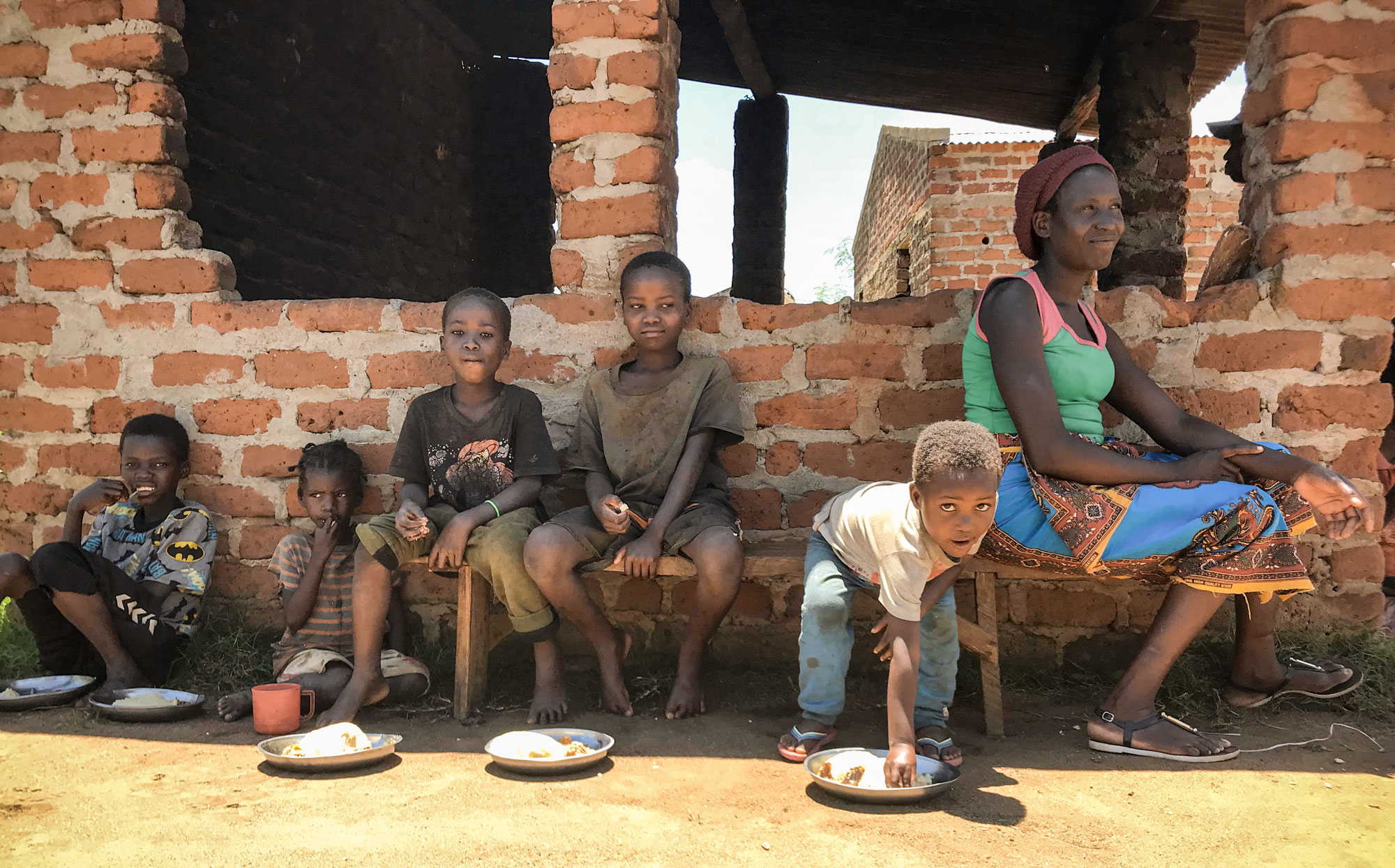
Prior to becoming a Care Worker in the community of Matsinho A, Mozambique, Rebecca* lost one of her seven children. She was married to a man who struggled with the abuse of alcohol and was very aggressive towards Rebecca, often, shamefully, outside in front of her neighbours.
One day, Maria, another Care Worker, invited Rebecca to join her in a fast for seven days to pray about the situation. On the sixth day of the fast, by the grace of God, Rebecca’s husband stopped drinking and has not been physically aggressive towards her since. Praise God! Shortly afterwards, Maria asked Rebecca to become a Care Worker. Rebecca agreed, saying that God didn’t ask for anything in return but delivered her, so that she could volunteer to help others. This was how she could serve and thank Him.
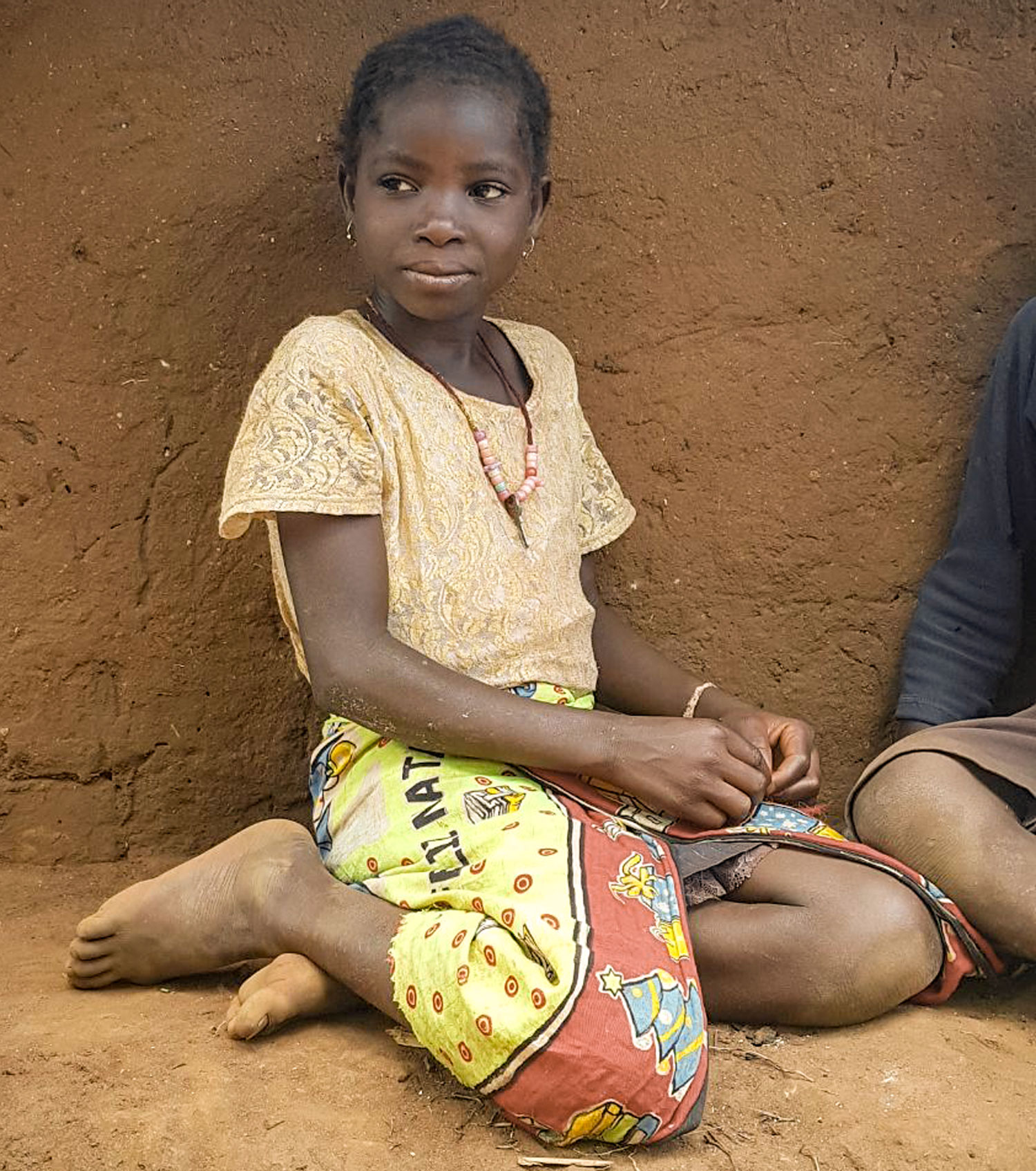
Matsinho Community, Mozambique
When Isabel’s* mother remarried, following her father’s death, Isabel and her younger brother, Noah*, were not accepted by their new stepfather. They were therefore sent to live with their elderly grandmother, Henda*, in a small, broken-down hut. In a tragic role reversal, Isabel was left to take care of her grandmother. Local volunteer Care Worker, Antonio, happened to be passing by Isabel’s house when he saw Henda lying outside on an old sack, very sick. Little Noah was trying to light a fire while Isabel had gone to beg for some maize meal. Shocked by their condition, Antonio immediately brought some food for the family and took the grandmother to hospital. He shared their situation with the other Care Workers, who quickly became involved in helping the family. Isabel and Noah were invited to the Care Point every day for a nutritious meal and the chance to be children at last. At first, Isabel struggled to play and make friends. But over time, slowly, she began to blossom under the motherly love of the Care Workers and through meeting other children who had lived through similar circumstances.
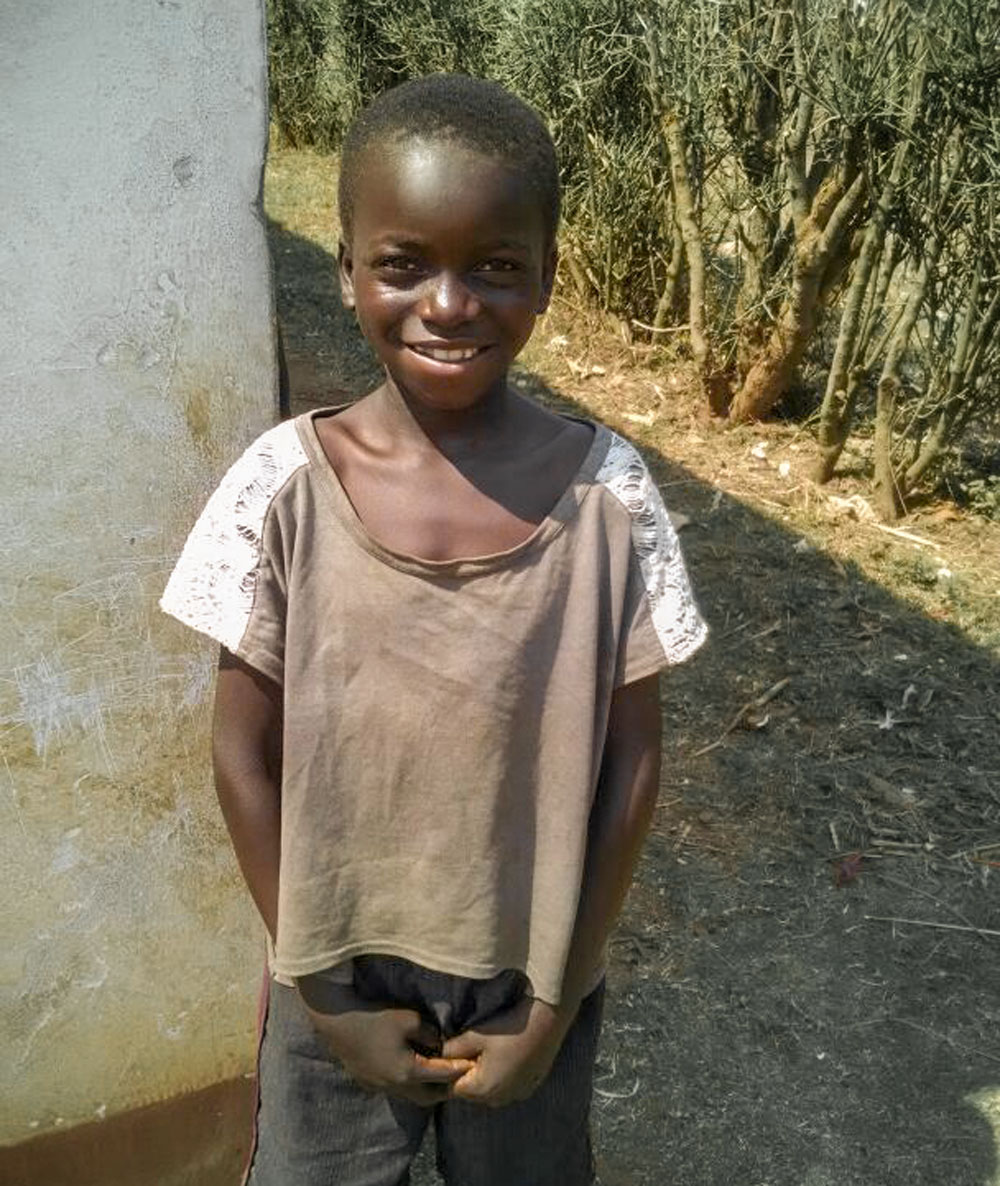
Julio* is a 10-year-old boy in grade 4 at school. He lives with his mother and 3 siblings who also attend the Matsinho Community Based Organisation (CBO). For Julio, being part of the Matsinho CBO means that he can receive physical support – like a daily meal – and also the chance to play with other children. Julio has found a new confidence in going to school since being given a uniform and shoes, and having his school fees paid for.
Matsinho Community, #Mozambique

The Care Workers from the Matsinho Care Point meet on a regular basis to pray and share the word of God together.

The Matsinho Care Point building.
















MORE FROM MOZAMBIQUE
“I’ve always had a heart for the vulnerable and I don’t believe in coincidences. I feel that God put the pieces of the puzzle together. He put these burdens in my heart and, at the right time, brought the opportunity for me to be useful in His Kingdom….”
Late last week and through the weekend Cyclone Idai hit South Eastern Africa. What initially looked like a bad storm has turned into disaster for tens of thousands of people, affecting Malawi first with floods, then Mozambique and Zimbabwe.
It is said to be the worst ever weather related disaster to strike the southern hemisphere according to the UN.
Miguel’s mother, Alima*, cares for Miguel and his three siblings alone. There was barely any money for food, let alone school fees. Even the barren soil around her home seemed to be against her, preventing her from growing a garden and on many days, the family went hungry.
We are grateful for the amazing support that we have seen growing in our church and surrounding communities. We have not only seen God’s hand in this but we have witnessed a deep appreciation for what Hands at Work is doing. Through regular visits and strong relationships, people have realised the love and trustworthiness that Hands at Work is based upon and therefore are willing to support the work with their finances and prayers.
Listen to collection of worship songs from across Africa and join in worshipping God together.
At 10 years old, Xiluva* has faced challenges that no child should ever have to face. When her father passed away in 2010, Xiluva was living with her mother and three siblings in Mudzidzi, Mozambique. When her mother remarried in early 2016, she took the children to the community of Macadeira and abandoned them with their ageing grandmother, Orpa*. Xiluva’s world fell apart.
Care Workers are the key in bringing healing and transformation to the lives of our children. They are men and women from the local churches within our communities who recognize their Biblical mandate and answer their call to care for the most vulnerable children. They demonstrate what it means to give freely, love unconditionally, and sacrifice everything. Often, Care Workers face their own traumas and live in dire poverty, just as the children they care for do, but their determination to persevere and care despite their own circumstances challenges everyone they come into contact with. They are greatest in the Kingdom of God!

When Gertrude was 6 years old her father died, leaving her mother to care for her and her 4 year old brother, Alexandre. “It was sad for us to lose our father,” Germena says. “It was difficult. No one was helping us, and my mother worked very hard in the fields to provide food for us. We did not have any money and many times we went to bed hungry. Without a father in the house we did not feel safe and were scared of other people to abuse us.”







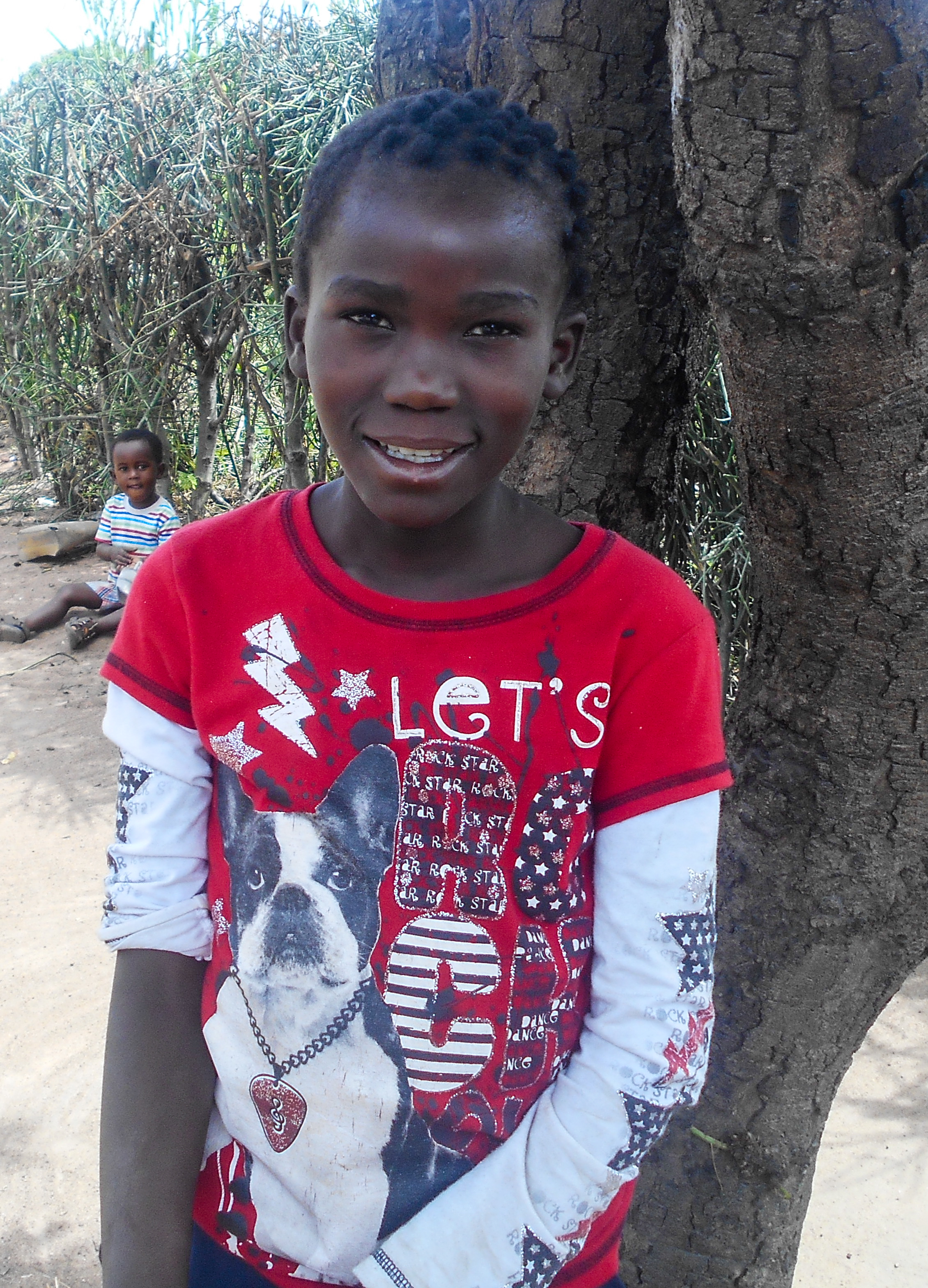

For the past four years, Chumai has suffered from epilepsy. His mother decided to return to her family because she could not deal with Chumai’s illness or those of the rest of the family, including Chumai’s father. A few months after leaving her children, Chumai’s mother remarried. Tragically Chumai’s father, Joaquim, died after falling from a platform used to dry maize cobs.